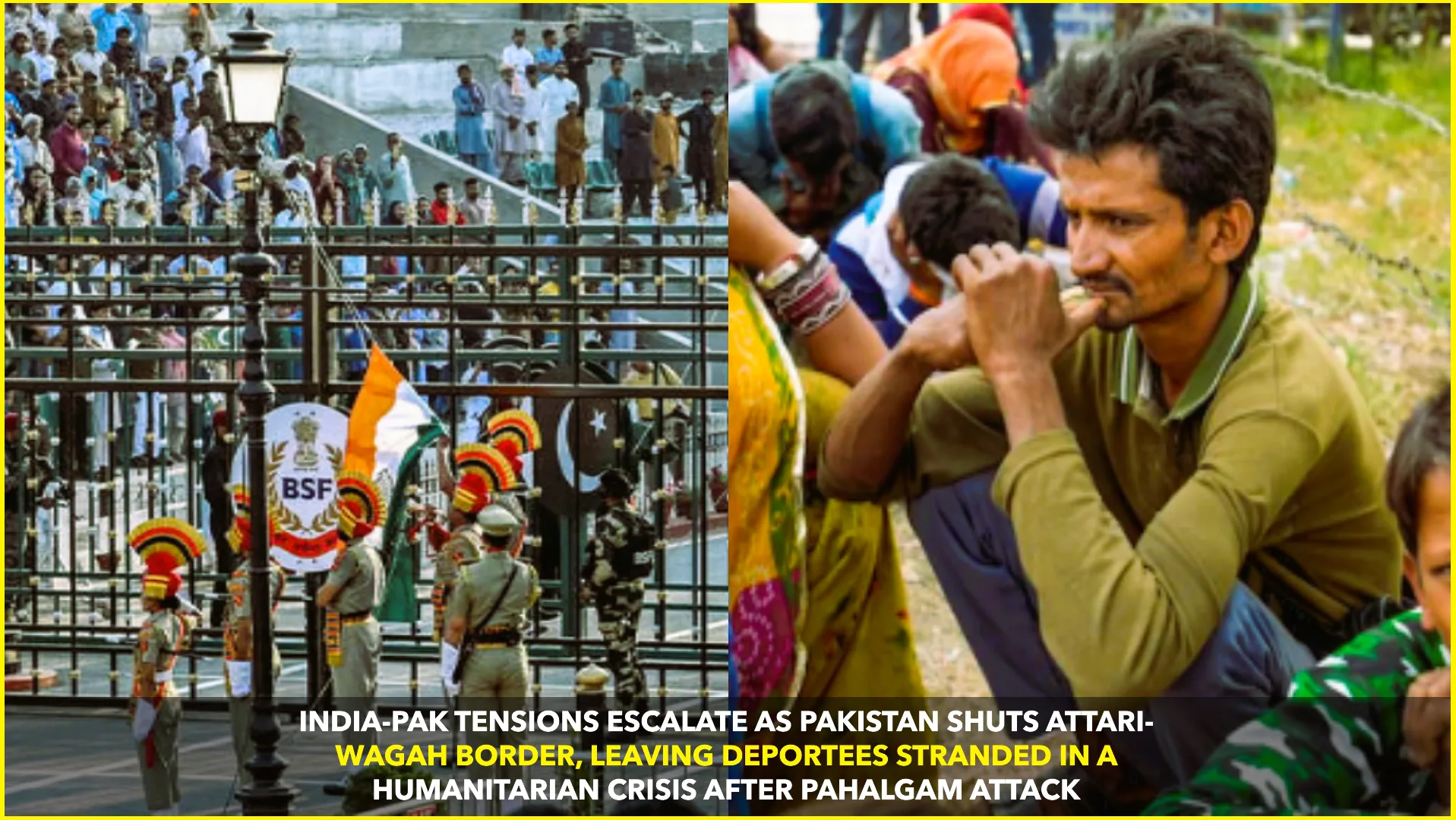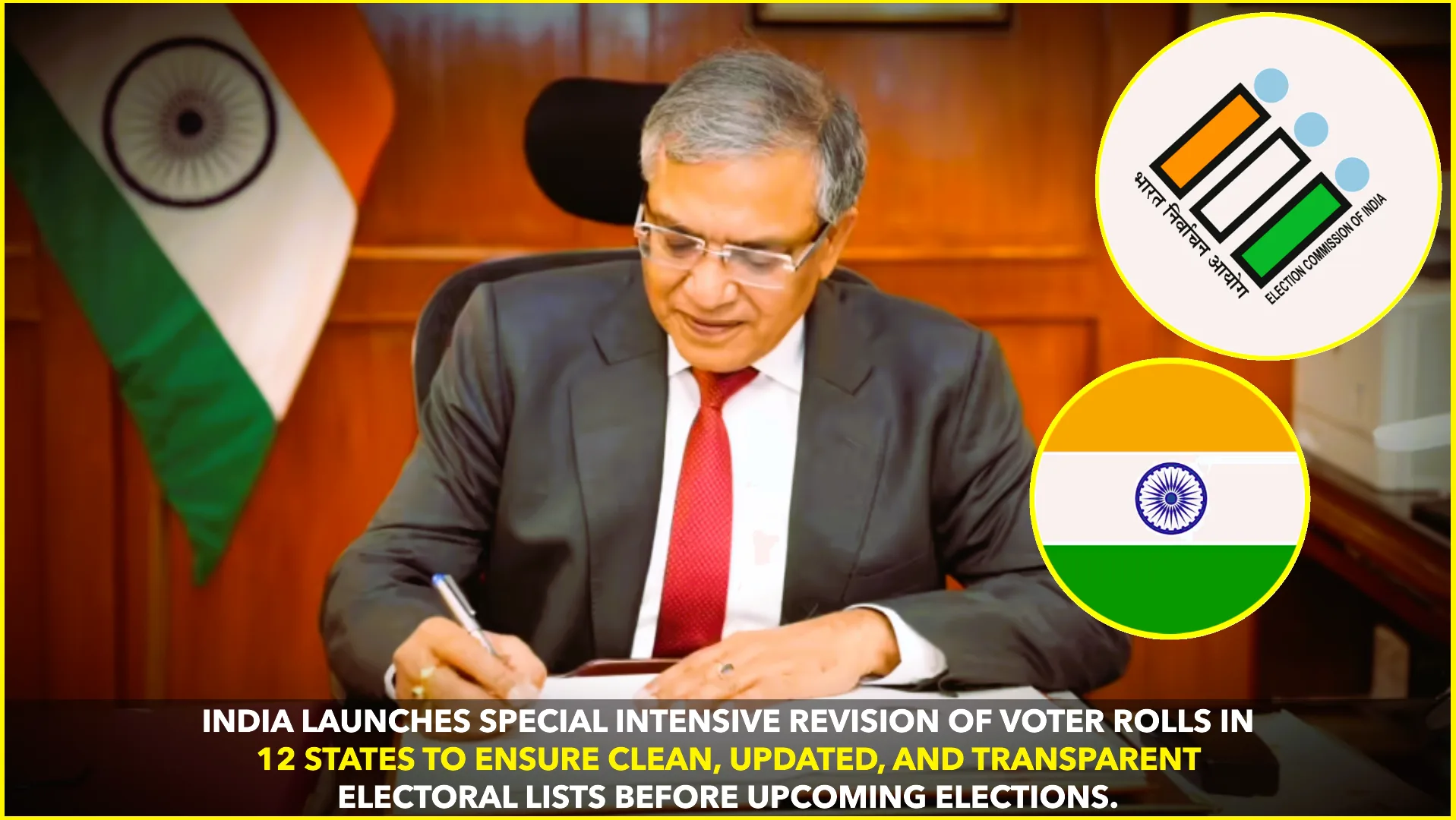New Delhi / Attari – Tensions between India and Pakistan have escalated sharply following Islamabad’s abrupt decision to shut the Attari-Wagah border crossing, leaving hundreds of Pakistani nationals stranded in what is quickly becoming a humanitarian crisis. The closure came just days after the deadly Pahalgam terror attack in Jammu & Kashmir, which claimed 26 lives, and has significantly strained already fragile bilateral relations.
According to officials, over 887 Pakistani nationals had already been deported and repatriated through the Attari-Wagah corridor in recent weeks, part of an ongoing crackdown on individuals with invalid documents or overstayed visas. However, the sudden suspension of border operations by Pakistani authorities has left many still waiting to be sent back, stuck in limbo at holding centers near Amritsar and other parts of Punjab.
Among the stranded is a woman carrying a 14-day-old newborn, whose plea not to be forcibly returned has stirred widespread concern. “I’ve built my life here. My child is an Indian citizen. How can they just send us back like this?” she told reporters tearfully. Her husband, an Indian citizen, has appealed to authorities for clemency on humanitarian grounds.
The closure of the border—normally a crucial link for both passenger travel and cross-border trade—has brought not only distress to deportees but also economic disruption. Trade analysts warn that the abrupt halt in goods movement could impact small-scale traders and disrupt supply chains, particularly in border states like Punjab.
Political Fallout and Security Concerns
Pakistan’s move comes in the wake of the April 29 terror attack in Pahalgam, which Indian officials have attributed to militants backed from across the border. The attack targeted a bus carrying Hindu pilgrims and tourists, prompting India to step up security along its western front and accelerate the deportation of undocumented foreign nationals, particularly those of Pakistani origin.
Indian authorities maintain that all those slated for deportation have violated visa norms or lacked valid documents. “This is not about religion or politics—this is a matter of national security and immigration control,” said a senior Home Ministry official, speaking on condition of anonymity.
However, rights activists and opposition leaders have criticized the timing and handling of the deportations. “Families are being torn apart. Many of these people have lived in India for decades, married here, and have children who are Indian citizens,” said human rights advocate Meera Qureshi. “This could have been managed in a far more humane manner.”
Diplomatic Breakdown Looms
The crisis has worsened already deteriorating diplomatic ties between the two nuclear-armed neighbors. Pakistan’s Foreign Ministry issued a statement blaming India for the “inhumane treatment” of its nationals and claimed the border closure was necessitated by security concerns.
India, on the other hand, has accused Pakistan of weaponizing humanitarian issues to deflect from its failure to curb cross-border terrorism. “The attempt to politicize legitimate deportation processes is deeply regrettable,” said Arindam Bagchi, spokesperson for India’s Ministry of External Affairs.
While back-channel talks between the two governments were reportedly underway last month to revive bilateral dialogue, the Attari-Wagah shutdown and the aftermath of the Pahalgam attack appear to have derailed those efforts.
Human Cost Mounts
At ground level, the impact is immediate and heartbreaking. Several deportees have refused to board buses headed toward the border, pleading with Indian authorities for a review of their cases. Some claim they lost contact with their families in Pakistan years ago and now have nowhere to return.
Local officials in Amritsar have expressed concern over the rising humanitarian needs at temporary holding centers. “We are trying to provide basic facilities like food, water, and medical aid, but the numbers are increasing,” said District Magistrate Priya Bajaj.
As the diplomatic standoff deepens, many fear the situation may spiral into a prolonged crisis unless both nations find a way to address the humanitarian and political dimensions of the issue.
Sources:
- Ministry of External Affairs, Government of India
- Pakistan Foreign Office Press Release
- Local administrative reports from Amritsar District
- Interviews with deportees and human rights groups










